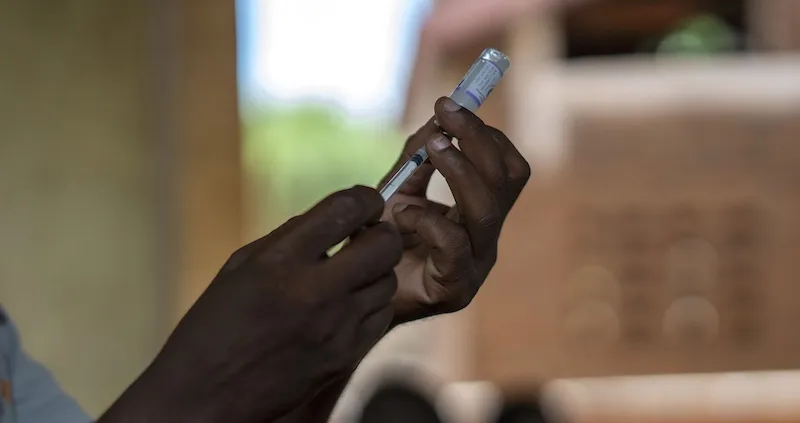download player
The malaria vaccine, which was tested in Burkina Faso, has shown very promising results, showing that it is 80 percent effective in preventing disease in children, after a booster dose one year after it was first administered. The result significantly exceeds the 75 percent efficacy threshold set by the World Health Organization (WHO) to identify a malaria vaccine as beneficial.
The results of the clinical trial were published in the medical journal Lancet Infectious Diseases this week. The study explains how the immune response can be restored to levels similar to the first administration, even after a booster dose. The vaccine is called R21 and it was developed by the University of Oxford (UK) in collaboration with other health institutions and the American biotechnology company Novavax.
The clinical trial included 450 children aged 17 months to 5 years in Burkina Faso, where malaria occurs mostly seasonally. For this, further trials will be necessary, because administering the vaccine just before the start of the malaria season can affect the results, simply because the vaccine is more protective against disease when it does occur. In places where malaria is fairly constant during the year, you can become infected several months after vaccination.
However, clinical trials of the R21 vaccine are underway in four other African countries, with a project involving about 4,800 children. The results of these trials may provide new data on vaccine efficacy and booster dose. The first data should be available by the fall and will also be analyzed by WHO experts.
The new vaccine can be quickly made available to many countries, thanks to a an agreement With the Serum Institute, the world’s leading vaccine manufacturer based in India, which has pledged to produce up to 200 million doses annually once approvals from health authorities are obtained. The volume of vaccines produced would be much larger than the expected few tens of millions for the RTS,S vaccine, approved last year by the World Health Organization and made by pharmaceutical company GlaxoSmithKline.
The World Health Organization (WHO) estimates that more than 200 million people come into contact with malaria each year, almost always from mosquitoes considered healthy carriers of the disease. If the patient is treated promptly, he can recover without particular problems, avoiding complications, but in many rural areas of Africa, Asia and Latin America, it is often impossible to obtain proper health care. It is estimated that around 430,000 people worldwide died of malaria in 2015 alone. For this reason, research efforts are directed towards systems to reduce the number of infections, for example by developing a truly effective vaccine or reducing the risk of disease from mosquitoes.

“Internet trailblazer. Travelaholic. Passionate social media evangelist. Tv advocate.”







More Stories
He discovered a gas that only living organisms produce
Long tenures for general managers
NASA's Psyche space probe communicates via laser with Earth from a distance of 226 million kilometers